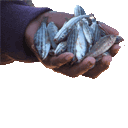Welcome to the ASCLME Project
 Between 2008 and 2013, the nine countries of the western Indian Ocean region, including Comoros, Kenya, Madagascar, Mauritius, Mozambique, Seychelles, Somalia, South Africa and Tanzania, will work together through the UNDP supported GEF financed Agulhas and Somali Current Large Marine Ecosystems (ASCLME) Project.
Between 2008 and 2013, the nine countries of the western Indian Ocean region, including Comoros, Kenya, Madagascar, Mauritius, Mozambique, Seychelles, Somalia, South Africa and Tanzania, will work together through the UNDP supported GEF financed Agulhas and Somali Current Large Marine Ecosystems (ASCLME) Project.
Climate impacts and climate change
One of the reasons why international interest in the ASCLME region has grown over the past decade is the general recognition that the ocean region plays a key role in global climate. The leakage of warm water from the Agulhas system into the south Atlantic Ocean is the mechanism that has attracted most attention. This leakage seems to be controlled by mesoscale processes in the source regions of the Agulhas Current about which insufficient information is currently available. Coastal currents also affect the rainfall over the adjacent continental land masses and changes in these currents will therefore have an impact on terrestrial precipitation. This process is currently under investigation using numerical models.
Climate change may also affect the frequency and intensity of extreme events such as hurricanes. This will be of crucial importance for countries like Madagascar and Mozambique. Sea level rise will cause increased erosion of soft coastal plains and may therefore have substantial effects on low lying areas such as a major part of central Mozambique and low-lying small island states. Last, but not least, increased acidification of sea water, which occurs when more carbon dioxide is absorbed, may cause increased bleaching of corals and have major effects on plankton that could have lasting effects on coastal regions of a number of ASCLME countries.



